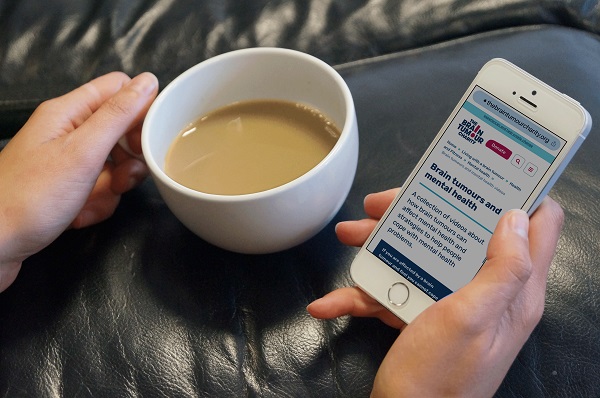Free Counselling
We offer free professional counselling for anyone diagnosed with a brain tumour and their loved ones.
We understand that a brain tumour diagnosis can be difficult. It can impact the mental health of the person affected and their family and friends. People often struggle with painful emotions and can find it hard to make sense of what has happened. This is why we offer free counselling.
Counselling offers you a confidential space to talk freely about your thoughts and feelings relating to yours, or your loved one’s brain tumour diagnosis. It can help you to process your experience. By talking to someone objective, who will listen without judgement, you can begin to bring a new understanding to your situation. You can work to find more manageable ways to cope.

Our free counselling
The Brain Tumour Charity is offering up to eight free counselling sessions to anyone diagnosed with a brain tumour or their loved ones. This is a remote service, offering free online counselling sessions via webcam, or over the telephone.
Sessions take place Monday – Friday, between the hours of 9am – 5pm. Our professional counsellors are not medical professionals, but are all appropriately qualified in counselling and have relevant experience and training to support those affected by a brain tumour diagnosis.
Eligibility
To be eligible for this service, you will need to be:
- 18 years or over
- Living in the UK
- Able to access a phone or webcam for counselling sessions
- A patient or loved one impacted by a brain tumour diagnosis
- At any stage of your brain tumour journey, including newly diagnosed and bereaved
- Not currently receiving counselling/therapy elsewhere
- Wishing to have counselling to focus on the impact that a brain tumour diagnosis has had on your life
How to access free counselling
The current waiting list to start counselling is 1 to 4 weeks dependent on client availability.
To access our counselling service, you will need to complete the below self-referral form and book yourself in for an Initial Assessment with a member of our Support Team. The assessment will help us to understand your needs and what support you are looking for. If suitable, you will then be matched to an available and appropriate counsellor for you.
We are only able to offer individual counselling and no longer offer relationship counselling for couples.
As per our privacy policy, your data will be kept securely and handled with care on our secure database. The information you share with us is confidential and would never be shared externally without your consent, unless we are legally or ethically required to do so. You can read further information about this in our Privacy Policy.
If you have any questions about the service, you can contact the Counselling Team on counselling@thebraintumourcharity.org, or by calling 01252 237136 (Mon-Fri, 9am-5pm).